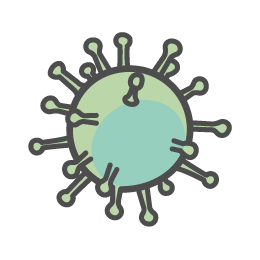
Join to View Full Profile
50 Irving St NwWashington, DC 20422
Phone+1 202-745-8301
Are you Dr. Jolson?
Join over one million U.S. Physicians, Nurse Practitioners and PAs, already on Doximity.
- Gain access to free telehealth tools, such as our "call shielding" and one-way patient texting.
- Connect with colleagues in the same hospital or clinic.
- Read the latest clinical news, personalized to your specialty.
Summary
- Dr. Heidi Jolson, MD is an infectious disease specialist in Washington, District of Columbia.
Education & Training
 MedStar Health Georgetown University/Washington Hospital CenterFellowship, Infectious Disease, 1992 - 1993
MedStar Health Georgetown University/Washington Hospital CenterFellowship, Infectious Disease, 1992 - 1993 Boston University Medical CenterResidency, Internal Medicine, 1981 - 1984
Boston University Medical CenterResidency, Internal Medicine, 1981 - 1984 Georgetown University School of MedicineClass of 1981
Georgetown University School of MedicineClass of 1981
Publications & Presentations
PubMed
- 28 citationsDiscriminators between Hantavirus-Infected and -Uninfected Persons Enrolled in a Trial of Intravenous Ribavirin for Presumptive Hantavirus Pulmonary SyndromeLouisa E. Chapman, Barbara A. Ellis, Frederick Koster, Mark J. Sotir, Thomas G. Ksiazek
Clinical Infectious Diseases. 2002-02-01 - 93 citationsIntravenous ribavirin for hantavirus pulmonary syndrome: Safety and tolerance during 1 year of open-label experienceLouisa E. Chapman, Gregory J. Mertz, Clarence J. Peters, Heidi M. Jolson, Ali S. Khan
Antiviral Therapy. 1999-12-01 - 54 citationsThe incidence of depression in new users of beta-blockers and selected antihypertensivesB. Burt Gerstman, Heidi M. Jolson, Mark S. Bauer, Pyone Cho, James M. Livingston
Journal of Clinical Epidemiology. 1996-07-01
Press Mentions
 Guidelines for Using Antiretroviral Agents Among HIV-Infected Adults and Adolescents: The Panel on Clinical Practices for Treatment of HIV* FreeSeptember 3rd, 2002
Guidelines for Using Antiretroviral Agents Among HIV-Infected Adults and Adolescents: The Panel on Clinical Practices for Treatment of HIV* FreeSeptember 3rd, 2002 Hepatitis C: How Widespread a Threat?December 15th, 1998
Hepatitis C: How Widespread a Threat?December 15th, 1998 How Access to a Protocol and Underlying Data Gave Yale Researchers a Big Black EyeApril 14th, 2024
How Access to a Protocol and Underlying Data Gave Yale Researchers a Big Black EyeApril 14th, 2024









